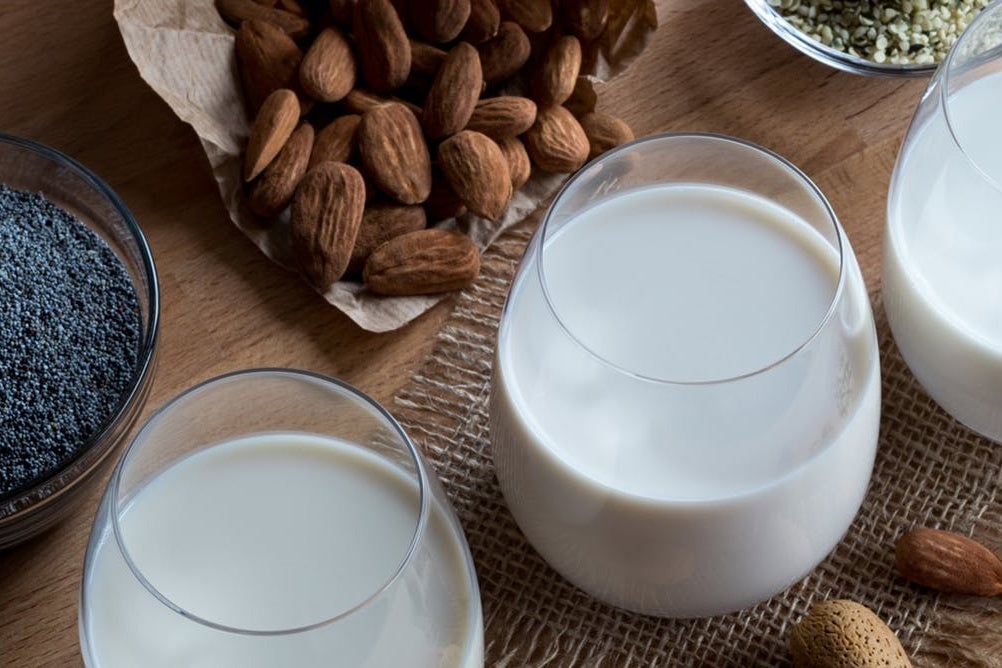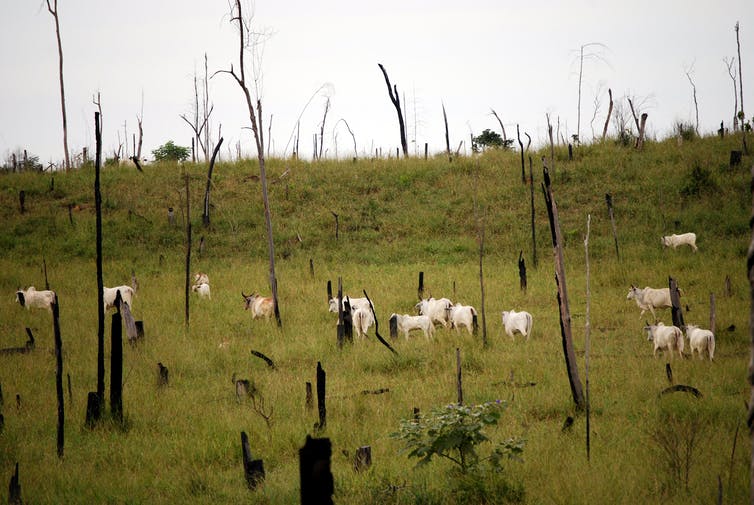How to make global food systems more sustainable
This is a critical time for our planet. What we eat and how we get our food will shape its future

Your support helps us to tell the story
From reproductive rights to climate change to Big Tech, The Independent is on the ground when the story is developing. Whether it's investigating the financials of Elon Musk's pro-Trump PAC or producing our latest documentary, 'The A Word', which shines a light on the American women fighting for reproductive rights, we know how important it is to parse out the facts from the messaging.
At such a critical moment in US history, we need reporters on the ground. Your donation allows us to keep sending journalists to speak to both sides of the story.
The Independent is trusted by Americans across the entire political spectrum. And unlike many other quality news outlets, we choose not to lock Americans out of our reporting and analysis with paywalls. We believe quality journalism should be available to everyone, paid for by those who can afford it.
Your support makes all the difference.Last October, movie director James Cameron and his wife Suzy Amis Cameron launched an organic pea protein operation in Saskatchewan. Once it is up and running, this facility will be the top producer of organic pea protein in North America.
At a news conference, Cameron said he was “not unsympathetic” to the cattle industry, but that he was concerned with the environmental impacts of animal agriculture, and wanted to help reduce meat consumption and greenhouse gas emissions and improve health.
This is a critical time for our planet. What we eat and how we get our food will shape its future.
Climate change, destructive weather, volatility in food production and the rise of non-communicable diseases (diabetes and elevated blood pressure, for example) that have become the leading causes of premature death worldwide demand that we think hard about what we eat and call for more sustainability in our global food systems.
Powered by plants
Last year set the stage for plant-based eating with the release of the Impossible Burger and other plant-based proteins that resemble beef. People can live well eating plant-based diets and the appetite for them is growing.

A 2016 survey found that 17 per cent of Americans adhere to a plant-based diet exclusively or predominantly, while another 60 per cent are cutting back on meat-based products. Similar trends are taking hold in Europe and Asia.
A decrease in meat eating could help governments save billions in health care costs. High levels of meat and saturated fat consumption are linked to a growing burden of chronic conditions, such as diabetes, cardiovascular diseases and some cancers.
In Canada, a recent report found that provincial health-care spending could rise to 80 per cent of budgets by 2030 if diets and lifestyles remained unchanged. These escalating costs are mostly driven by an increase in the use of drugs, medical technology and human resources to treat these diseases.
Planting ahead
Global food systems are increasingly generating severe human, social, environmental and economic costs. In an effort to boost efficiency, productivity and profits, we have intensified and mechanised agricultural processes, including plant and animal breeding.
As a result, our food production and consumption habits have become major drivers of climate change, water stress, land grabs, biodiversity loss, soil erosion, deforestation and the depletion of fish stocks.
We need smarter, healthier and kinder approaches.
For example, it is grossly inefficient to grow grains and feed them to livestock. It would be 10 times more efficient if humans ate these grains and seeds instead.
It would also be more equitable. The price of grains increases when feedstocks are channelled to industrial animal agriculture, and puts them out of reach of marginalised populations.
A food makeover
Both the United Nations and the Food and Agriculture Organisation have called for reforms in food and farming systems. The evidence gathered reveals the need for limits on chemical-intensive agriculture, intensive livestock production, the mass production and mass marketing of ultra-processed foods and for sustainability practices to drive needed improvements to long and deregulated global commodity supply chains.

In short, they are advocating for more sustainable diets across the planet. Sustainable diets seek to achieve positive outcomes for people, animals and the planet by taking into account health, environment and equity in diet, as well as lifestyle.
Independent research groups, such as IPES-Food, are also collaborating with citizens and social movements to shape policies and encourage the transition to more sustainable food systems.
In a recent report, IPES-Food and the Global Alliance for the Future of Food highlighted the many ways food is connected to our lives. They urge governments, industry and citizen-consumers to build more integrity into food systems by applying reliable approaches that are holistic, publicly supported and that replace poor outcomes with inspiring and sustainable results.
Succulent opportunities
Innovation with greens and plant-based foods is already worth billions and is only expected to keep growing. With plant-based businesses growing exponentially, traditional food companies are seizing opportunities to invest in plant-based brands.
Maple Leaf Foods, Canada’s largest meat distributor, extended its product line to include plant-based protein foods by acquiring Lightlife Foods and Field Roast, which offer grain-based “meat” and vegan cheese products. These are not lightweight businesses: Field Roast had approximately $38m in sales in 2016.
Tyson Foods, a prominent US meat producer, has also enlarged its stake in the plant-based company Beyond Meat, and the multinational food company Danone acquired WhiteWave, a plant-milk company.
Many more business opportunities await those with imagination. More succulent foods are anticipated in the market and some will include pea protein from the facility launched by James Cameron and team.
The future could mean cleaner air, water and fortified soils, along with healthier and more equitable lifestyles – all powered by delicious plant foods.
Kathleen Kevany is an associate professor in sustainable food systems and the director of the Rural Research Centre at Dalhousie University. This article was first published in The Conversation (theconversation.com)
Join our commenting forum
Join thought-provoking conversations, follow other Independent readers and see their replies
Comments